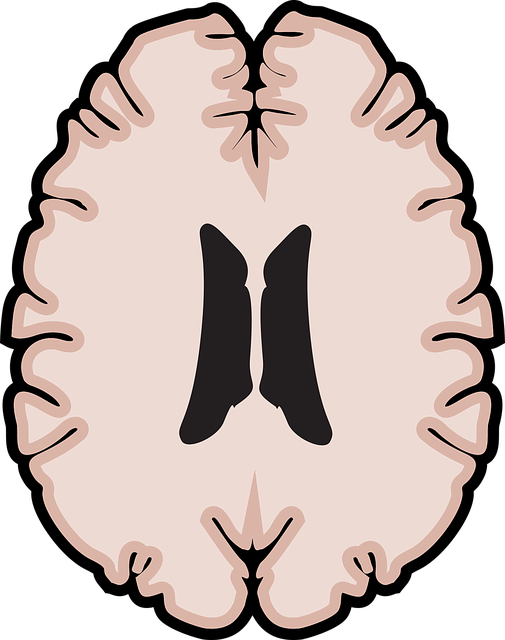Creating a wellness podcast series on mental health, especially focusing on Littleton Panic Disorder (LPD) and anxiety attacks, requires a multifaceted approach. It involves collaborating with experts, telling authentic stories, and providing practical coping strategies. The podcast should foster a therapeutic environment with calming production elements and empathetic hosting. High-quality audio recording and editing ensure accessibility for listeners managing LPD. Strategic marketing and distribution on popular platforms are key to reaching diverse audiences. By combining education, storytelling, and community engagement, the series can offer valuable support for those dealing with anxiety disorders.
“Unveiling the complexities of mental wellness through the lens of a podcast series—a powerful medium for education, support, and recovery. This comprehensive guide navigates the process of creating an engaging and therapeutic space with ‘Mental Wellness Podcasting’. From understanding anxiety disorders, including the intricacies of Littleton Panic Disorder, to practical tips on recording and editing, this article equips creators with strategies to foster comfort and trust among listeners. Discover how to plan compelling topics, engage guest experts, and market your podcast effectively for a targeted audience seeking anxiety attacks therapy.”
- Understanding Mental Health: An Overview of Anxiety Disorders, with a Focus on Littleton Panic Disorder
- Planning Your Podcast Series: Topics, Guest Experts, and Storytelling Strategies for Engaging Content
- Creating a Therapeutic Environment: Production Techniques to Foster Comfort and Trust with Listeners
- Practical Tips for Recording and Editing: Ensuring Quality and Accessibility for Your Audience
- Marketing and Distribution: Building an Accessible Platform and Engaging Your Target Listeners
Understanding Mental Health: An Overview of Anxiety Disorders, with a Focus on Littleton Panic Disorder

Understanding mental health is paramount when producing content for a podcast series focused on wellness. Anxiety disorders, including Littleton Panic Disorder (LPD), are prevalent and often require specialized care. LPD, characterized by recurrent and unexpected panic attacks, can significantly impact an individual’s daily life. These sudden bursts of intense fear often lead to physical symptoms like rapid heartbeat, sweating, and dizziness, causing individuals to believe they are experiencing a life-threatening event.
Effective therapy for anxiety disorders, including LPD, involves various techniques such as cognitive-behavioral therapy (CBT), which helps individuals challenge negative thoughts and change behaviors contributing to their anxiety. Crisis intervention guidance plays a crucial role in providing immediate support during panic attacks, teaching coping strategies, and promoting resilience. Additionally, cultural sensitivity in mental healthcare practice is essential, ensuring diverse populations receive tailored care. Risk assessment for mental health professionals is also critical to identify potential triggers and implement appropriate safety measures when working with individuals experiencing anxiety disorders.
Planning Your Podcast Series: Topics, Guest Experts, and Storytelling Strategies for Engaging Content

When planning your podcast series on mental wellness, carefully curating topics is essential to keep listeners engaged. Consider focusing on various aspects of mental health, including specific disorders like Littleton Panic Disorder and Anxiety Attacks Therapy, offering diverse perspectives for a comprehensive understanding. Each episode can delve into different strategies for coping and recovery, ensuring a well-rounded approach that resonates with a broad audience.
Guest experts play a pivotal role in enhancing content quality. Reach out to professionals such as therapists, psychologists, and mental health advocates who can share valuable insights on emotional healing processes and trauma support services. Their firsthand experiences and expertise will add depth and authenticity to your series. Additionally, storytelling is a powerful tool; weave narratives that illustrate the complexities of mental illness and recovery, providing listeners with relatable and inspiring stories. This strategy not only captivates but also fosters a sense of community among your audience.
Creating a Therapeutic Environment: Production Techniques to Foster Comfort and Trust with Listeners

Creating a therapeutic environment is paramount for an effective mental wellness podcast series. This involves carefully crafting each element to foster comfort and trust among listeners, especially those dealing with conditions like Littleton Panic Disorder and Anxiety Attacks Therapy. The production team should aim for a warm and inviting atmosphere by using soothing background music, gentle sound effects, or even soft spoken introductions to set a calming tone.
Additionally, the host’s voice should exude empathy, genuine interest, and a sense of safety, encouraging listeners to open up about their struggles without fear of judgment. Conversational language and relatable content can help create a connection, making complex mental health topics more accessible. Incorporating personal anecdotes or inviting guest speakers with similar experiences can further enhance this environment, offering valuable insights that resonate with the audience, ultimately contributing to burnout prevention in a supportive setting.
Practical Tips for Recording and Editing: Ensuring Quality and Accessibility for Your Audience

Recording and editing your podcast episodes is a crucial step in providing high-quality content for your listeners. Start by investing in good quality microphones to capture clear audio, ensuring minimal background noise. Positioning yourself in a quiet space and using sound-absorbing materials can significantly improve audio quality. For emotional healing processes, consider the atmosphere you create through music and sound effects; they should enhance the experience without overwhelming the listener.
When editing, focus on consistency and accessibility. Maintain a steady pace and clear transitions between segments. Ensure that your podcast is easy to navigate for all audiences, including those with Littleton panic disorder and anxiety attacks. Avoid excessive use of jarring sounds or sudden cuts, as these can be triggering. Instead, opt for gentle fade-ins and -outs. Additionally, consider the cultural competency training you might offer as a healthcare provider; creating content that resonates with diverse listeners is essential for building a broad and engaged audience.
Marketing and Distribution: Building an Accessible Platform and Engaging Your Target Listeners

In the realm of mental wellness podcast series production, marketing and distribution strategies are paramount to building a robust audience and delivering life-changing content. The key lies in creating an accessible platform that resonates with your target listeners, especially those grappling with issues like Littleton Panic Disorder and Anxiety Attacks Therapy. Utilize social media platforms, relevant online communities, and mental health forums to reach and engage this demographic directly. Collaborating with influencers or experts in the field can also amplify your message, ensuring your podcast gains visibility among those seeking support for their Mood Management and Crisis Intervention Guidance.
Effective distribution channels, such as Apple Podcasts, Spotify, and Google Podcasts, are essential for making your content widely available. Optimizing your podcast’s metadata, including keywords like “Littleton Panic Disorder” and “Anxiety Attacks Therapy,” improves searchability on these platforms. Additionally, incorporating emotional healing processes into your episode topics can attract listeners interested in personal growth and mental well-being. Engaging with your audience through interactive elements, such as Q&A sessions or call-to-action prompts, fosters a sense of community and encourages continuous participation.
The production of a mental wellness podcast series, such as one focusing on Littleton Panic Disorder and anxiety attacks therapy, offers a powerful medium for raising awareness, providing support, and fostering open conversations about mental health. By covering diverse topics, collaborating with expert guests, and employing effective storytelling techniques, creators can craft engaging content that resonates with listeners seeking understanding and healing. Through strategic production methods, accessible recording and editing practices, and targeted marketing strategies, podcasters can build a trusted platform to reach and aid their audience on their mental wellness journeys.














